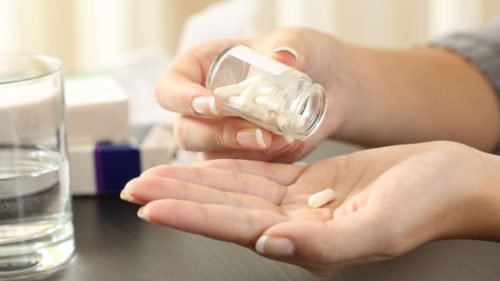Do I Need To Take Aspirin Daily?

Aspirin, also referred to as Dispirin or Ecospirin, is one of the oldest medicines in the world. It is made from the bark of a willow tree and it is known to have been in use for quite many years. In fact, it is often referred to as the wonder drug – when you think of aspirin, you have a fever reducer, pain reliever, a heart attack preventer and, according to some studies, a cancer preventer all rolled into one tablet.
Chemistry of Aspirin
Aspirin belongs to a group of drugs called NSAIDs – Non-Steroidal Anti Inflammatory Drugs. In small doses (75 – 150mg), Aspirin binds to COX1 – an enzyme that promotes inflammation and makes your blood more “sticky”.
By blocking this enzyme, Aspirin causes your blood platelets to become “less sticky”. This slows down the blood clotting process, in effect reducing the risk of a heart attack or stroke.
In larger doses (150 – 300mg), aspirin also binds to another enzyme, COX2; this decreases the formation of a chemical compound called prostaglandin in the body. Reduction of prostaglandin provides relief from fever and pain.
Dosage
According to some studies, in the right patient, a small dose of daily aspirin can reduce the risk of heart attack by as much as 20%. Some studies have also reported aspirin’s effectiveness in reducing the risk of strokes. On the contrary, regular aspirin intake may have possible side effects. Aspirin induces thinning of the blood; this increases chances of bleeding in the brain and abdomen. Injury related bleeding is likely to become severe too.
USPSTF or the United States Prevention Service Task Force endorses the use of Aspirin to reduce your risk of having a heart attack, stroke and, in a more recent update, colon cancer too. But, it is important to remember that aspirin has to be prescribed by a doctor on an individual basis. The doctor will carefully weigh the risks and benefits before putting you on the medicine.
Aspirin Intake: Risk Calculation
One of the ways to calculate your risk is by using risk calculators. There are many different risk calculators – the most commonly used is the Framingham Risk Score – FRS Score; or the ASCVD Calculator. By answering a few simple questions about your health, you can get an estimate of the risk you run of developing cardiovascular issues (heart attack, stroke etc).
An important point to remember is that all these risk scores were derived from primarily Caucasian populations so they cannot be directly extrapolated into every ethnic group and culture, but they can, at least, give you a basic idea where you stand.
In the right patient and in appropriate doses, aspirin can be quite beneficial. However, it is absolutely important to talk to your doctor before starting a daily dose of aspirin.
Disclaimer: This content including advice provides generic information only. It is in no way a substitute for qualified medical opinion. Always consult a specialist or your own doctor for more information.
